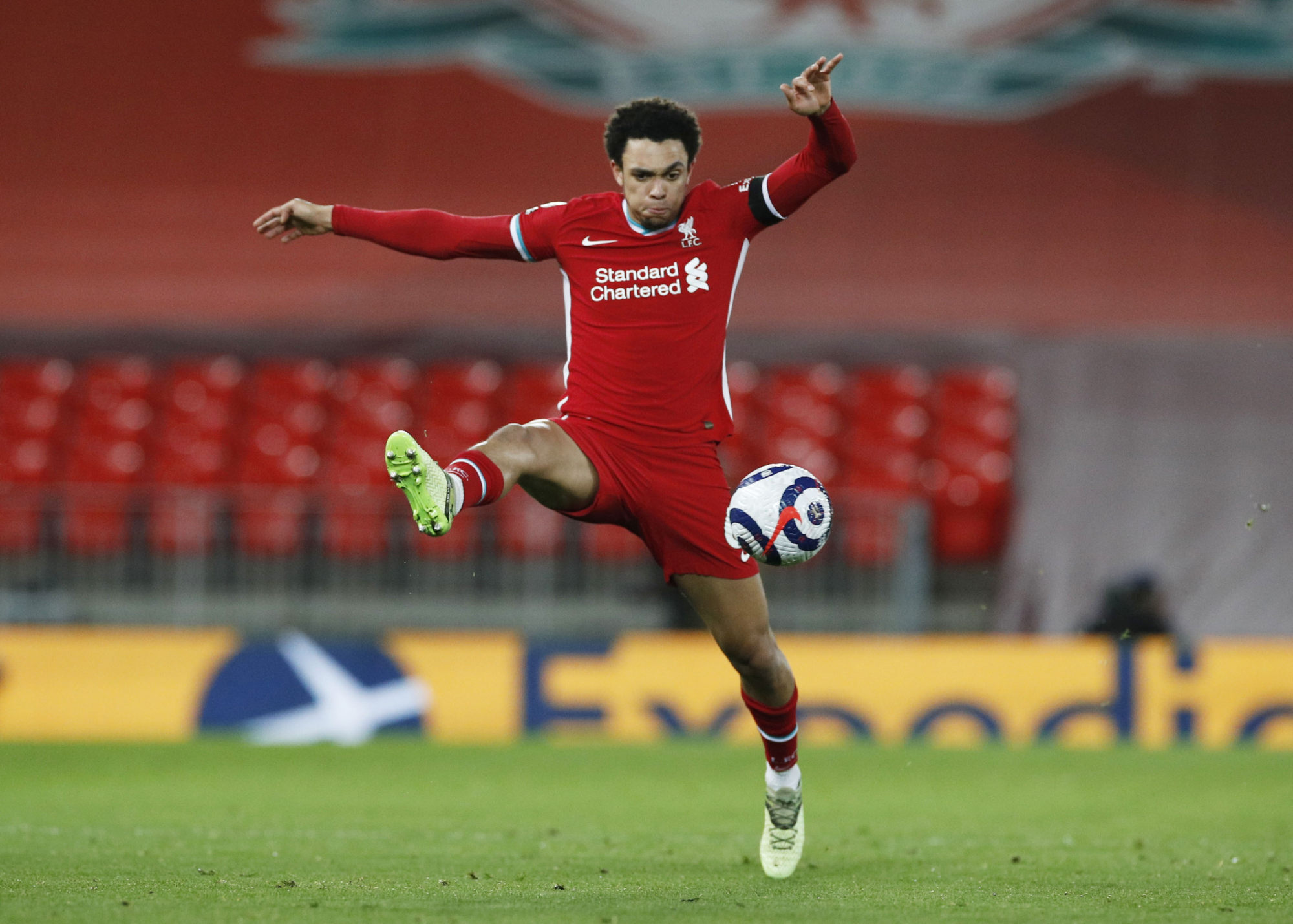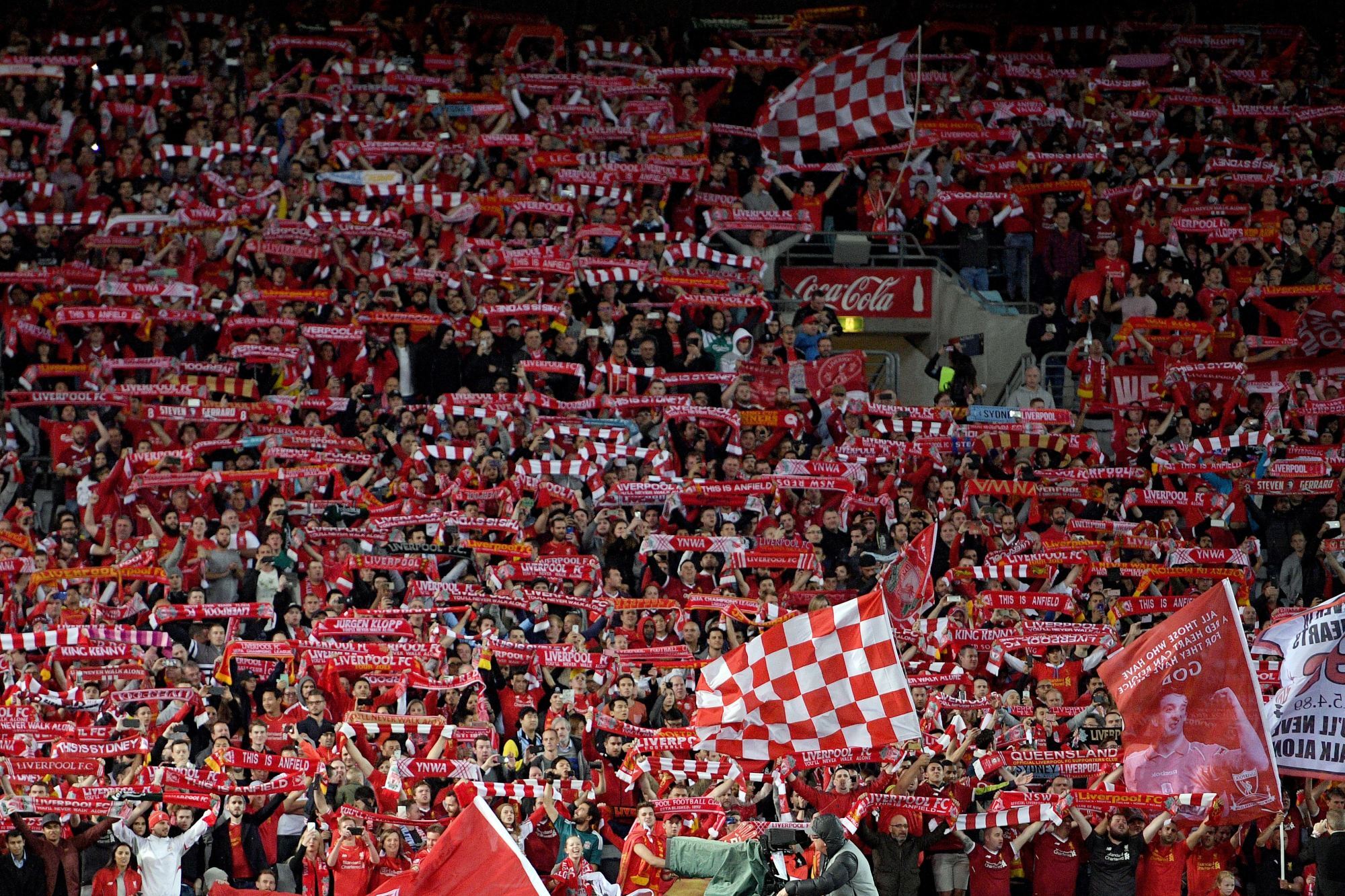
Liverpool vs England: Trent Alexander-Arnold’s dropping by Southgate reignites ‘Scouse Exceptionalism’ debate among Reds supporters
- Liverpool wing-back Trent Alexander-Arnold was surprisingly dropped by England boss Gareth Southgate for England’s latest internationals
- Some Liverpool supporters claim to be pleased that it limits the chances of another of their players succumbing to injury on international duty
Trent Alexander-Arnold’s exile from the England squad was greeted with glee by a substantial proportion of Liverpool supporters. Many Kopites would be pleased if Gareth Southgate never called up another player from the club.
The break will give the full back time to rest. There is no risk of the 22-year-old coming back from international duty carrying an injury. Joe Gomez was lost for the season in November while preparing for a friendly against Ireland. The reasons for the antipathy towards the national side run far deeper, however. A banner unfurled before every pre-pandemic home game at the front of the Kop explains the situation. It says: “We’re not English we are Scouse.” Merseyside is another country.
Residents of Liverpool are referred to as “Scousers”. They use the term with pride. It stems from lobscouse, a word that originated in the Baltic ports of northern Europe describing a basic, potato-based dish. The use of the shortened version emerged as a pejorative expression on the banks of the Mersey. Destitute Irish immigrants ate cheap, watery stew. Scousers were the poorest of the poor, outcasts in society, sneered at by those in respectable society.
The massive waves of Celtic immigration in the second half of the nineteenth century changed the nature of Merseyside. Little more than 100 years ago, a significant segment of citizens still considered themselves Irish, even though they were born in Liverpool. These were the people who took the insult, turned it around and created a new identity: Scouse. It had nothing to do with Englishness.
Its appeal was perfect for the melting pot of the port city, with its considerable Chinese and black minorities. Scouse became a stew of people, always reflecting the sensibility of the outsider. “The magic of Liverpool is that it is not England,” the Glasgow-born political activist Margaret Simey said. She understood the place.
Alexander-Arnold is from West Derby, a couple of miles from Anfield. Being dropped by Southgate is more a blow to his pride than his patriotism. He is Scouse.

There are, of course, many Liverpool fans and people from the region who consider themselves Scouse as well as English and support Southgate’s team. They are uncomfortable with the banner on the Kop.
There are observers both on Merseyside and beyond who regard the idea of the separation of Englishness and Scouse as an affectation. They draw parallels with the Manchester United fans who flew Argentinian flags after David Beckham was demonised by England supporters for getting sent off against Argentina in the 1998 World Cup. Yet Scouse Exceptionalism goes way beyond football. It has deep historical roots that stretch back to the Great Famine in Ireland nearly two centuries ago.
Liverpool, the football club, has become the flag-bearer for this identity. Literally. Two decades ago a terrace movement developed with the aim of ensuring that Anfield maintained a distinct look. Other Premier League stadiums are festooned with Union Flags and Crosses of St George. These standards are rare on the Kop. A group called Keep Flags Scouse went to huge lengths to keep the banner culture unique.
This worked to a large extent. It is unusual to see an England flag with “Liverpool” lazily written on the cross.
Scousers feel different. Their immigrant city has historically been treated badly by the government in London and demonised by the media. Merseyside is more often than not politically at odds with the prevailing mood of the country. It has remained left-leaning and global in its perspective as the nation has moved rightward during the English nationalist Brexit project.
Many in the United Kingdom regard Liverpool as a maverick municipality. It is important to remember that the city did not create this state of affairs. It has been “othered” and treated differently for generation after generation. More recent events have only hardened opinion. In the early 1980s, the Conservative government considered the region’s “managed decline” at cabinet level. They discussed a plan to deliberately withhold economic resources from the area so the populace would be forced to move away - basically, starving the people out.
Look at the Kop, that surging, pulsating expression of civic pride, and compare it with other ends in the Premier League and beyond
The Hillsborough disaster underlined how badly Liverpool has been failed by the British establishment. The deaths of 96 fans at the 1989 FA Cup semi-final against Nottingham Forest were blamed on fellow supporters, even though the tragedy was caused by calamitous police errors. It took more than two decades for the truth to emerge but even now no one has been held to account for what happened and the subsequent cover up by the authorities.
The British public and politicians invariably react with shock and anger when Liverpool supporters boo the national anthem before showpiece games at Wembley. If they listened properly they would hear the voice of a city.

Kopites want to see their heroes excel on the international stage. They are excited by Mo Salah’s exploits for Egypt and love to watch Andy Robertson captaining Scotland. Even the most Scouse-centric diehard likes to see Alexander-Arnold do well while wearing the Three Lions badge.
That is about as far as it goes with Southgate’s team. It is not a case of Liverpool first, England second; there is a common belief that it is impossible to be both Scouse and English.
Liverpool’s famous stand is unique. Because it’s not English. It is Scouse.

